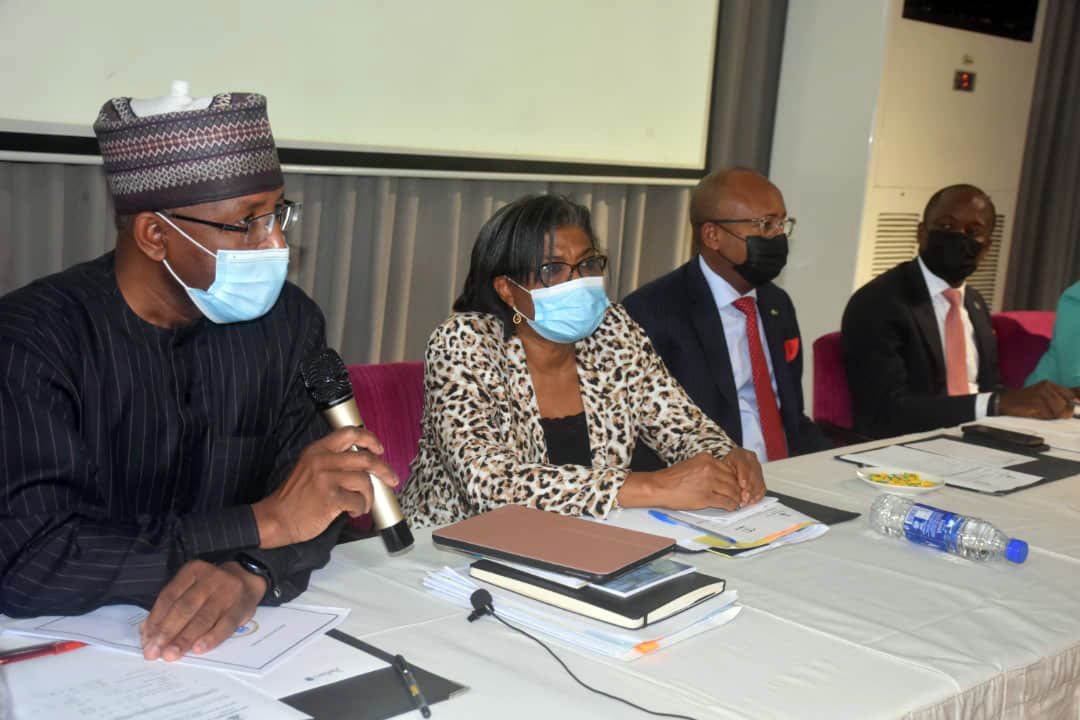Business
AMCON Blames Court Orders For N3.6trn Debt Recovery Difficulty

The Asset Management Corporation of Nigeria (AMCON) says the slow pace of the nation’s court processes and sometimes conflicting orders by the courts have frustrated the recovery of N3.6 trillion outstanding bad debts acquired from banks.
Managing Director/Chief Executive Officer of AMCON, Mr Ahmed Kuru, disclosed this at the 2022 edition of the House of Representatives Committee on Banking, and Currency retreat with the Management of the Corporation in Lagos.
Kuru noted that the Corporation has so far recovered N1.4 trillion out of the N5 trillion bad debts acquired from banks.
Represented by AMCON’s Group Head, Asset Management Directorate, Mr Matthew Coker, Kuru disclosed that the N1.4 trillion recorded so far comprises cash of N681 billion; Property Forfeiture of N279 billion; Share Forfeiture of N140 billion; and other strategic assets totalling N208 billion.
He disclosed that a total cash recovery of over N116.9 billion has been recovered on Polaris EBAs from date of acquisition to date.
The AMCON boss told the lawmakers that despite the Special Powers as provided by its enabling Act, AMCON still struggled with the implementation due to the nation’s judicial system.
“Honorable members, the Corporation’s recovery processes at this point majorly depend on the Judiciary, in terms of obtaining Possessory Orders or Orders for sale.
“The slow pace of our court processes and sometimes conflicting orders by the Courts, especially at the Federal High Court (FHC), which is our Court of first instance, frustrates the recovery process. There are delays in obtaining dates in the Court to hear AMCON matters.
Business
NCDMB, Jake Riley Empower 250 Youths On Vocational Skills

Business
NUJ Partners RSIRS On New Tax Law Education

Transport
Nigeria Rates 7th For Visa Application To France —–Schengen Visa

-

 Sports1 day ago
Sports1 day agoArsenal Women End Man City’s Invincibility
-

 Sports1 day ago
Sports1 day agoU-20 WWC: Falconets claim qualifier win
-

 Sports1 day ago
Sports1 day agoInsurance Deepen Enyimba’s Trouble
-

 Sports1 day ago
Sports1 day agoYouth Olympics preparation Gears up
-

 Environment1 day ago
Environment1 day agoRivers State Government Suspend Fire Service Collection Levies
-

 Sports1 day ago
Sports1 day agoTornadoes Set For NPFL exit over Stadium Ban
-

 Sports1 day ago
Sports1 day agoCologne Youth Team Set Crowd Record
-

 Environment1 day ago
Environment1 day agoLASEMA pushes attitudinal change to cut fire outbreaks in Lagos

